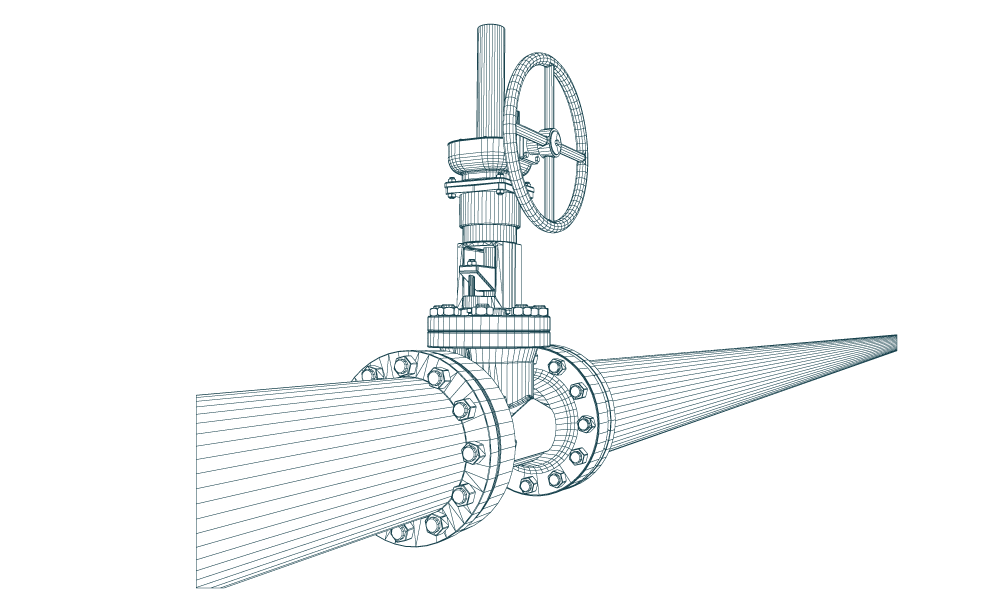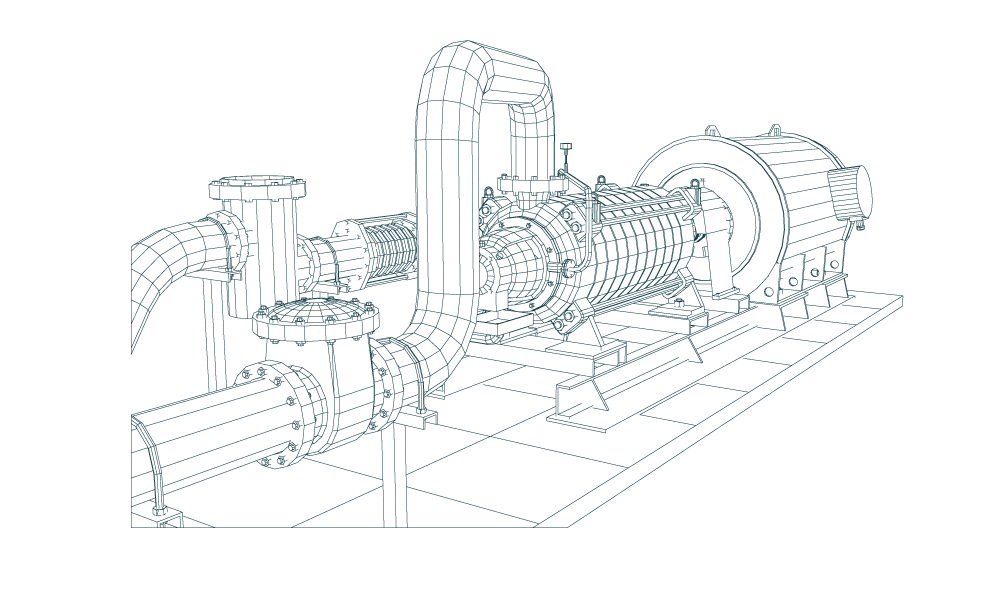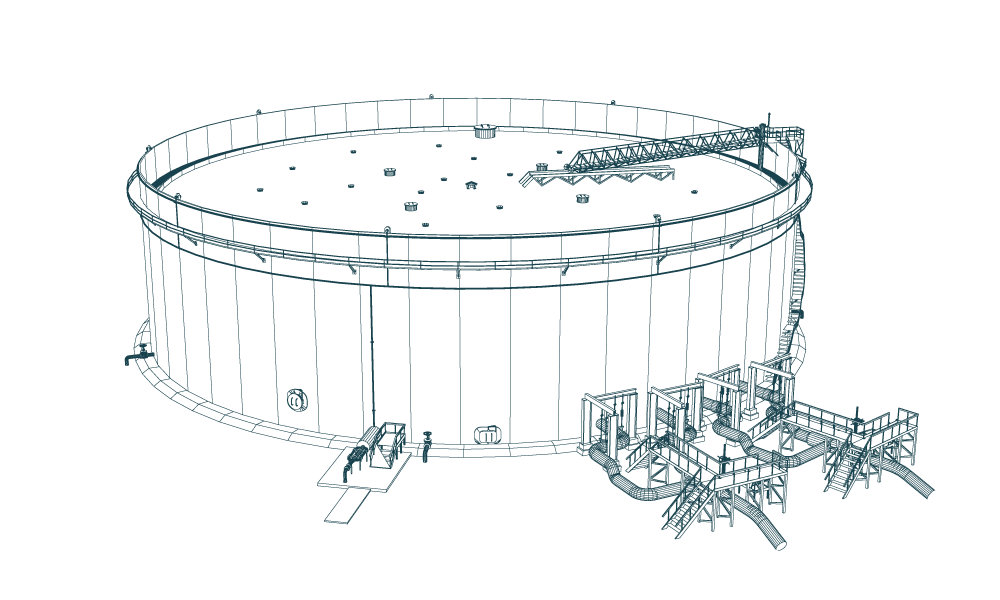PCS® Insights
Sharing Industry Knowledge, Lessons-Learned and Published Presentations
Do You Need a 408 Review?
USACE 408 Review Permitting Update

The U.S. Army Corps of Engineers (USACE) constructs, operates, and maintains numerous civil works projects across the nation. Readily identifiable examples of civil works projects are flood protection levees, hydropower dams, and lock systems to support inland navigation.
Civil works projects are public undertakings, done to support public welfare and funded by taxpayer dollars.Therefore,
when direct alterations, or indirect actions that may result in alterations, to civil works projects are contemplated by the USACE or another entity,
public or private, the USACE is required by Congress to analyze if the proposed activity could adversely alter the function of the civil works project.
If an adverse alteration could occur that would impair the function of a civil works project, the activity proponent must make changes to its activity
to significantly reduce or eliminate adverse aspects. The statute requiring this analysis by the USACE is codified at Title 33 of the United States
Code at Section 408, hence the shorthand phrase for the analysis, “408 Review”. Successful 408 Review is a threshold approval, and the USACE cannot
issue a permit, such as a Section 10 permit for structures in navigable waters or a Section 404 permit for dredge and fill activities, or approve any
other permission, such as a real estate outgrant to occupy or use USACE lands, until a 408 Review is completed and an alteration approved.
408 Review is conducted by the USACE under the policies and procedures found in USACE Engineering Circular No. 1165-2-216, as well as district-level review procedures that may have been promulgated by district engineers and a host of engineering manuals and technical publications the USACE has produced to carry out its engineering missions. In implementing the 408 Review procedures, the USACE develops an execution plan to assure that appropriate reviews are conducted, as applicable, in the areas of hydraulics and hydrology, geotechnical engineering, civil engineering, structural engineering, levee safety, environmental effects, regulatory compliance, real estate, legal affairs, and any subject matter specialties that the 408 Review may indicate. Under Engineering Circular 1165-2-216, this process could require significant resources, especially time, to complete.
408 Review Projects We Have Supported
Main line flood protection levee at Taft, Louisiana. PCS supported 408 review and levee stability analysis for pipeline horizontal directional drill under
the Mississippi River.

Garrison Dam, a hydropower civil works project on the Missouri River in North Dakota, created Lake Sakakawea. PCS supported the 408 Review for a pipeline crossing of Lake Sakakawea.

Harvey Canal Lock, located in Harvey, Louisiana. PCS supported a pipeline routing analysis and 408 Review opinion.

Less Identifiable Civil Works Projects
Other civil works projects are less identifiable, such as coastal shipping navigation channels, fairways, and anchorages, pump stations and drainage systems,
beach nourishment and wetlands creation, and water storage dams and reservoirs.
Gulf of Mexico, Louisiana offshore waters. PCS supported 408 Review for installation of pipelines crossing coastal shipping safety fairway.

Fourchon Terminal, Port Fourchon, Louisiana. PCS supported 408 Review for pipelines horizontally directionally drilled under shoreline into the Gulf of Mexico. Shoreline is a beach nourishment site and offshore are coastal shipping navigation channels and fairways.

Recently, the USACE has begun the process of improving the 408 Review procedures. In mid-January 2018, the USACE issued Directors Policy Memorandum 2018-01 which immediately changed the 408 Review procedures in several ways. Most changes were only applicable to the USACE and its activities. A notable exception is the that a private entity seeking to conduct an activity needing 408 Review no longer is obligated to obtain an endorsement of their proposed activity from the non-federal sponsor of the civil works project that may be altered. An example of a non-federal sponsor of a civil works project is a port commission that works hand-in-hand with the USACE to operate and maintain shipping channels, turning basins, and anchorage sites to support a port.
Further changes to improve the 408 Review procedures are in development. The USACE expects to issue the changes as a new publication by August 2018 as Engineering Circular 1165-2-220 which will replace EC-1165-2-216.Changes that have been identified so far that will help proponents of activities that will require 408 Review are the following:
- Clarification on when 408 Review is required
- Options for securing 408 Review and permission, such as a single review or a multi-phased review approach
- Clarification of information requirements from activity proponents requesting 408 Review and permission
- Clarification of USACE requirements for 408 Review plans, decisions, and public interface
- Requirement that 408 Review decisions must be made at the lowest level
- 408 Review timelines:
- 30-day completeness determination of 408 requests
- 90-day final 408 Review decision
- Estimated final decision dates if the 408 Review is complex
- 408 Review database to track review progress
- 408 Review will have the option to adopt the National Environmental Policy Act environmental analysis completed by USACE Regulatory for its Section 10 or Section 404 permit instead of having to conduct a separate NEPA review and documentation associated with the 408 Review.
For the regulated public that must secure a 408 Review and approval before receiving a USACE permit, the coming changes to the 408 Review procedures are a welcome improvement. Increased predictability, decision timeliness, and elimination of redundant environmental reviews will be a boost to planning, funding, and building projects to the benefit of the USACE, the public, and project proponents alike.
Article Details
Author: Clay Bryant
PCS®
More Information
Contact Us
We would appreciate any opportunity to assist you, and to connect you with the right person at PCS ® to address your needs and answer any questions.
Request Info Call Us 1-800-643-8306


